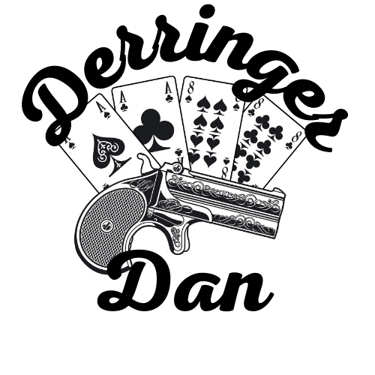How to Choose a Handgun: Home Defense vs. Concealed Carry
Not sure which handgun is right for you? Learn the key differences between firearms for home protection and concealed carry so you can make a smart, confident choice.
OPINIONINFORMATION
Derringer Dan
7/20/20253 min read


How to Choose a Handgun: Home Defense vs. Concealed Carry
Choosing a handgun can feel overwhelming, especially with so many calibers, frame sizes, and styles available. The first and most important question to ask yourself is: what do I need it for? A handgun for home defense has different priorities than one for everyday concealed carry, and while some guns can serve dual purposes, most are better suited for one or the other.
Let’s break it down to help you make an informed, confident decision.
Handguns for Home Protection (and Target Shooting)
When it comes to defending your home, size and weight aren't as critical as they are for concealed carry. In fact, a larger handgun is often preferable — they’re easier to control, offer higher magazine capacities, and have longer sight radii, which can help with accuracy.
You’ll want something that fits your hand well and offers manageable recoil. Don’t go too small — tiny guns tend to be snappy and harder to shoot accurately.
Two main types to consider:
Revolvers for Home Defense
Revolvers are known for their reliability and simplicity. They don’t jam like semi-automatics can, and they’re ready to go every time you pull the trigger.
Ideal calibers: .38 Special (especially +P-rated for more power) or .357 Magnum (which can also shoot .38 Special).
Capacity is usually 5–6 rounds, which may sound low, but simplicity and ease-of-use often make up for it in high-stress scenarios.
Minimal maintenance and fewer moving parts.
Semi-Automatics for Home Defense
Semi-automatics give you more firepower, higher capacity, and faster reloads — with a bit more complexity.
Ideal calibers: 9mm, .40 S&W, or .45 ACP.
Look for full-size or mid-size models that offer 10 to 18-round magazines.
Easier to add accessories like lights or lasers.
A home defense pistol should also serve well for target practice. Being able to shoot it comfortably and consistently is just as important as its stopping power.
Handguns for Concealed Carry
A concealed carry gun has a completely different set of priorities. Here, the focus is on discretion, comfort, and practical power. You’ll likely be trading capacity and shootability for something lightweight and easy to carry all day.
Think of these guns as “comforting,” not necessarily comfortable to shoot. Smaller guns generally have more recoil, smaller grips, and shorter barrels — all of which make them tougher to shoot accurately for long sessions, but more practical for daily carry.
Again, you’ll be choosing between revolvers and semi-automatics.
Revolvers for Concealed Carry
Popular choice: .38 Special snub-nose revolvers (lightweight, 5 rounds, very simple to operate).
Pros: Very few failure points, easy to carry, often legal even in more restricted jurisdictions.
Cons: Limited capacity and slower reloads.
Semi-Automatics for Concealed Carry
Ideal calibers: .380 ACP, 9mm, or in some cases .45 ACP.
Micro-compact 9mm pistols (like the Ruger LCP and the EC9s or SIG P365) are incredibly popular for their balance of power and size.
Pros: Higher capacity (6–12 rounds), faster reloads, thinner profile for IWB (inside-the-waistband) carry.
No matter which type you choose, comfort and confidence are key. A gun you can carry but don’t trust won’t serve you well. The same goes for a gun that’s so bulky or uncomfortable that you leave it at home.
Choose a Method of Concealment
Once you've picked your firearm, the next step is to figure out how you’ll carry it:
Inside the Waistband (IWB) holsters are the most common.
Pocket carry is only viable with very small firearms and proper holsters.
Appendix carry, shoulder rigs, or ankle holsters offer other options depending on your wardrobe and lifestyle.
There's no one-size-fits-all answer when it comes to choosing a handgun. The best firearm for home defense may not be the best choice for daily carry. Think about your needs, try different models if possible, and never rush the decision.
A good gun is one you can shoot confidently, carry responsibly, and rely on in a moment that counts.
Whether you're protecting your home, your family, or yourself — being prepared starts with choosing the right tool for the job.
My Handguns Picks for Beginners by Category
Best for Home Defense:
Glock 19 (9mm)
Reliable, easy to shoot, and high capacity (15+1).
Moderate size makes it easy to control in stressful situations.
Widely used by law enforcement for a reason.
Best for Concealed Carry:
Smith & Wesson M&P Shield Plus (9mm)
Slim, compact, and lightweight.
Higher capacity than earlier Shield models.
Available with or without a manual safety, giving you options based on comfort level.
Best for Target Shooting / Training:
Ruger SR22 (.22 LR)
Ultra-low recoil and super affordable to shoot.
Great for practicing fundamentals like grip, trigger control, and sight alignment.
Ideal for beginners who want to build confidence.
Best Revolver for Simplicity:
Ruger LCR (.38 Special / .357 Magnum)
Lightweight and simple to operate.
Excellent choice for those who want a no-nonsense, point-and-shoot experience.
Less intimidating for people not interested in semi-autos.
Best All-Around Choice (Versatile):
SIG Sauer P320 Compact (9mm)
Modular, ergonomic, and accurate.
Suitable for both home defense and concealed carry.
Ideal for someone who wants a “do-it-all” handgun with room to grow.
Subscribe newsletter
or Email us at: DerringerDan@Snakebite.com
For Advertising information: 941-876-8332
425 Montague ln. Northport, FL 34287
